Women Empowered
Donisha Prendergast — Using art and activism from Jamaica to the world
Published
4 years agoon
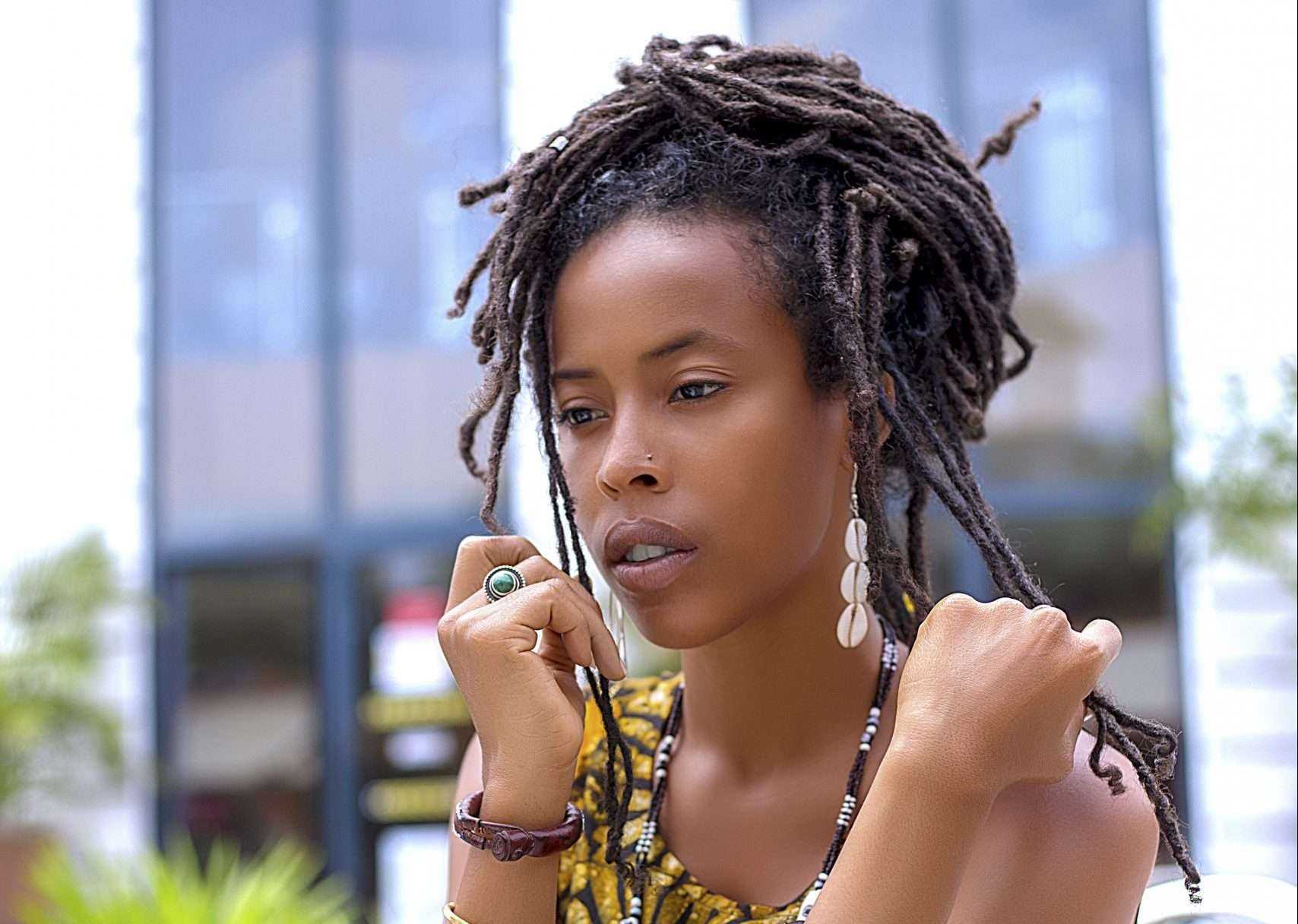
BY SELINA McCALLUM
This empowering young woman comes from a family of many accomplishments that have impacted millions of people around the world.
Donisha Prendergast is the granddaughter of Bob Marley, the famous Jamaican singer and songwriter, but she has made a strong and independent legacy for herself in her own right.
Prendergast was born and raised in Jamaica and started acting in theatre at the age of 17.
“People always told me how dramatic I was,” she laughs. “So, I wanted to make use of that, and I really enjoyed the stage because I grew up on the stage.”
From the time Prendergast was a little girl, she was touring all over the world with her family. Her mother, Sharon Marley, is also a Jamaican singer. She was in the group Ziggy Marley and the Melody Makers along with her younger sister and brothers.
“I saw how to use the stage as a platform to make social impact, and how many emotions were associated with performance and I really enjoyed that,” said Prendergast.
The budding actress ended up getting the role in a production without telling her family and missed many classes for rehearsals. It wasn’t until the PR campaign started to promote the show for audiences to come see, that she told her parents she was in a play.
“At first they were very distraught because they wanted me to finish school,” said Prendergast.
But her mother came around.
“My mom has always been very supportive, because she knows that I am a very free-spirit. When the show opened up, my mother was at every show for the first two months, every single night,” said Prendergast.
Being part of the Jamaican production also helped Prendergast blossom into her other talents. She is also a dancer, poet and model, but above all, she is a storyteller.
After acting in Jamaica for four years almost every single day, Prendergast went to Howard University in Washington, DC.
“From being on stage in Jamaica six days a week, I went to being on stage for an hour and a half once a week for a class. A lot of the characters that we were encouraged to audition for were black American characters and African American characters from the deep south,” said Prendergast.
The Jamaican actress felt she wanted to do more stories of her people and her experience.
This was around the same time her grandmother, Rita Marley, invited her to become a Youth Ambassador for the Africa Unite Youth Symposiums.
“My grandma had started doing this series called Africa Unite where she went to different parts of Africa every year starting with Ethiopia in 2005, Ghana in 2006 and South Africa in 2007. I went with her every year,” said Pendergast.
In 2007 she was asked to speak on a panel. Although she had been on a stage many times before, being on this stage was different. This is when she found her calling to also be an advocate.
“I found a different part of my voice. I found a different way to express myself that I didn’t know that even I had,” said Prendergast.
She grew to become miserable at Howard and left to be with her family in Miami without completing her degree there. Instead, she enrolled in film school in Miami.
“I wanted to do something more. I wanted to go into film because I felt it was important to start writing our story. There’s a quote that I learned that said, “Until the lion learns to tell his own story, the tale of the hunt, will always glorify the hunter,” said Prendergast.
In the fight for human rights, she wants the world to know that it wasn’t easy for the ‘hunter’, that she is fighting hard against the hunter. Since then, her works as a speaker and cultural ambassador have taken her through much of the Caribbean, Europe, Africa and North America.
In between the three-year film program, Prendergast completed a documentary called RasTa… A Soul’s Journey, a Canadian feature length documentary which took her to eight countries including Israel, Ethiopia, India and South Africa as a guide, to seek out the roots and evolution of RasTafari. She had one more semester to complete but didn’t end up going back.
“It was hard for me to go back to school when there was so much life happening in the world. The earth became my classroom,” said Prendergast. “I became really intent on being a better student and being a better teacher.”
Pendergast spends her time in Canadian and American classrooms, lecturing on the same stages as Magic Johnson, Desmond Tutu and Martin Luther King Jr III and speaking to audiences of up to 15,000 young people about the power of one love and activism for social healing.
She is currently studying film at Ryerson University on a scholarship and is expected to graduate this semester. Prendergast has been backstage on tour, on stage for theatre, and on stage for public speaking, but this is a stage that no one in her family has crossed before.
“First of all, graduating from the class Covid 2020 is quite interesting because I don’t even know if we’re going to be having a graduation ceremony. One of the reasons I did take this scholarship to go back to school was because I wanted to get a photo of me graduating and my mom, and my dad, and my grandma being there, because I don’t have that. Coming from a family of artists, a lot of them didn’t get to finish school,” said Prendergast.
“I did it, I defied the odds. I did all of the activism, I travelled, I spoke to people, I helped heal people, I helped to carry stories and still go back to school,” said Prendergast.
Alongside other founding directors of Manifesto Jamaica, Prendergast commitment to global community work has special focus on her healing works in Jamaica, especially with the youth of Faces of Tivoli Gardens Youth Organization, who she has been mentoring since the violent incursion of May 2010 among many other projects. Pendergast and her team created a healing garden with herbs and invited the community to come out, to plant and establish a sense of new growth.
“I didn’t live there, I couldn’t represent their story, but what I could do was empower the young people to learn how to make change in their community, sustainable change, like creating programs and finding funding or partners,” said Prendergast.
In addition, as a healer and community organizer she built a school for girls in the Mara Masaai region in Kenya with Free the Children. Pendergast has also marched through the snow for justice with the Idle No More movement and the Indigenous youth and ancient elders of Canada.
She encourages artists of all kind to use their platform for good and to impact political change.
“What are we doing as artists today? The thousands of people that we’re singing to on these stages, are we just singing to them to make sure that we sell tickets? Or is the message right, and righteous and empowering greater humanity in the world? What is the point of our art today?” said Prendergast.
Selina is a recent Digital Journalism and Communication, Media and Film Graduate from the University of Windsor. While in university, she served as the Arts and Culture Writer for The Lance, as well as a writer, interviewing selected individuals for Street Voices Magazine. Her passions include: creative writing, film, and photography. Over the last four months, Selina has collaborated on a documentary exploring sex trafficking and the horrific elements that harbour the untold truths of human trafficking in Windsor/Detroit. She is a: hard working, responsible and caring individual who continues to seek new challenges.

Women Empowered
Chika Ofoha – Helping the community tap into their creativity
Published
1 month agoon
March 25, 2024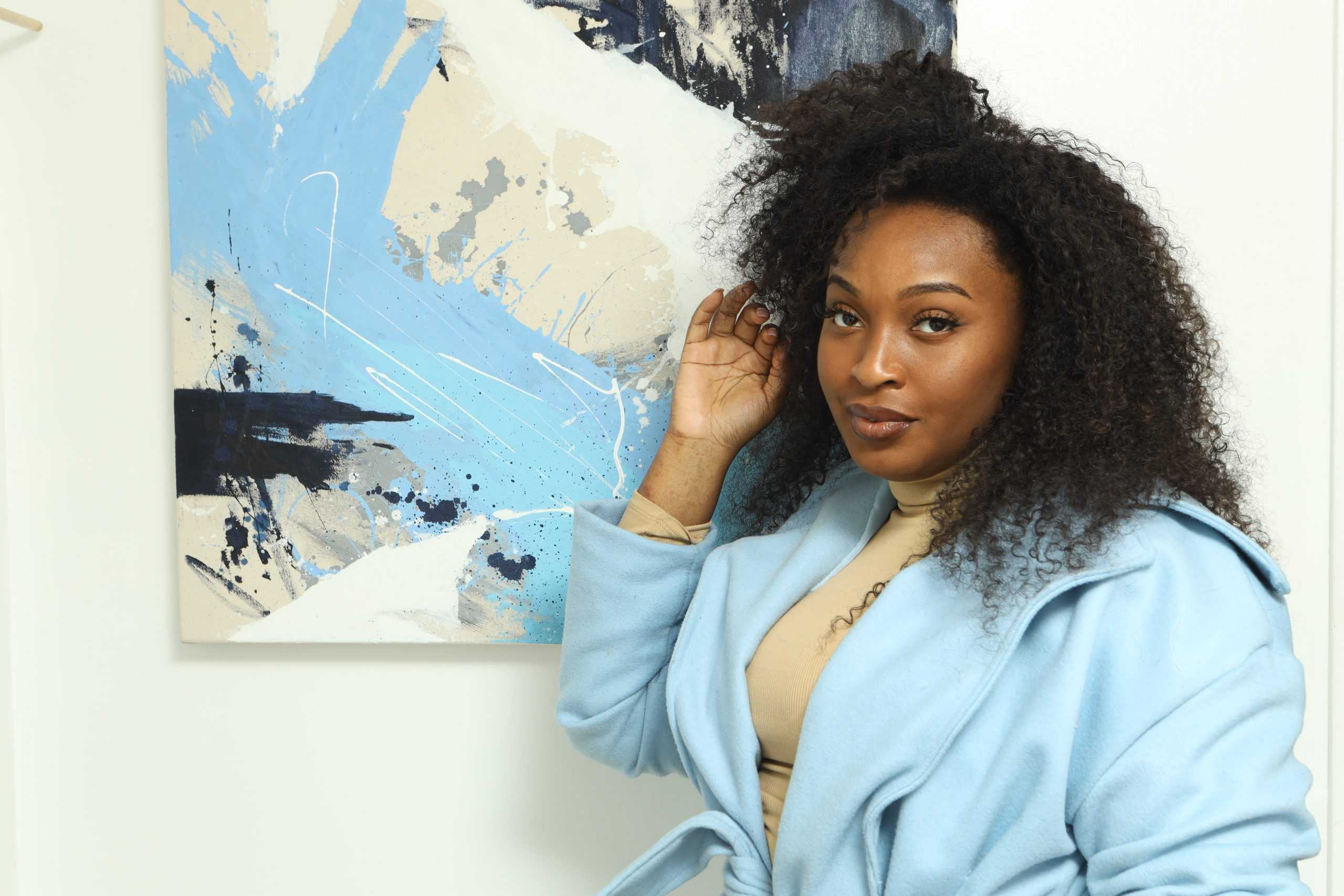
BY SIMONE J. SMITH
Whether it is photographs or works of art, images create a memory of people, places, and things that we hold with us forever. For Black women art has created a new space of recognition and has presented an opportunity to both celebrate and immortalize their contributions. It has created a new space of recognition.
Art does not show people what to do, or how to feel; great works of art create synergy between your senses, body, and mind. It can help you navigate your emotions, and this can spur thinking, engagement, and even action.
Most of us know the feeling of being moved by a work of art, whether it is: a song, a play, a poem, a novel, a painting, or a spatio-temporal experiment. Most recently I met a young woman, and upon seeing her work, I was transported to a new place that was, nevertheless, strongly rooted in a physical experience. I became aware of a feeling that I do not actively focus on. This transformative experience is what art is constantly seeking.
Quietly, Chika O has been experimenting with her artistic ability, finding ways to express herself, and help others express their innermost feelings. She specializes in curating inspirational and expressive paint events that enable those who are open to doing so tap into their creativity.
I was introduced to Chika O through a mutual friend of ours Nigel Birch; upon meeting her I knew that she was a phenomenon. It was on Friday, March 24th, 2023, that I saw the extent of her magic. She was the art curator at the LEGUP Secure your Wealth Symposium, and to see what she was able to do with the space, to turn a hotel common area into an art gallery; it was incredible. I decided right there and then that I wanted to share her talents with the world, so we sat down, and I went on an artistic journey with her.
“I went to school for the arts, but I didn’t do anything for myself,” Chika tells me. “I didn’t use my talent for anything. One day, I realized something had to change.
I was born in Mississauga, then my parents moved out to Newmarket. After my parents separated, myself, my four siblings, and my mother moved to Markham.
As a child, I was very vocal about what I wanted to do: be creative or play outside. All my gifts were focused on art. Give me paints, give me crayons, and give me a pencil crayon that is what I wanted. It was like this until I was 12 years old. School takes art seriously, so I used school as an outlet for my art.
They would spend more money on art supplies, and it allowed me to do more. There is basic art, but I wanted to be challenged. I wanted to learn techniques. From 10 to 12, that urge to learn more came up. My mom put me in art camp, and there I learned colour theory, sculpting, and how to work with clay.”
There was no denying; she was born an artist.
“I would win competitions at church because of the detail that I put into their work. There is so much that can be told by looking at a child’s art. You can learn so much from their world.”
She was very detailed explaining what art does for a child, and I knew that there was a story there.
“I was seven or eight when my parents separated. I learned a lot during that time. You never know what a child has to deal with. When I was younger, I was very attached to my dad. I copied everything he did. When my parents separated, the picture of my life was destroyed. When I had to shift to the new picture, I resented it. I didn’t like this new picture. Single mom, going to school, with the absence of my father; my world had revolved around him. I didn’t know what to revolve around anymore.
There was a gap, a hole. I woke up unhappy. Now I know that it was depression. My mom did the best she could. She would keep us connected to our community as much as possible, but it never filled the void.
It is only now that I am older; I realize why I focus on women in my art so much. It can be very difficult for us, especially when dealing with the opposite sex. Back then, I didn’t even have the words, so I put it in my art.”
Chika O takes her responsibility as an artist seriously; the idea that artists have responsibilities may come as a surprise to some – it is to help people not only get to know and understand something with their minds but also to feel it emotionally and physically. By doing this, art can mitigate the numbing effect created by our daily experiences. So, what she has done is find a way to bring art to the community in an interactive and engaging way.
“I curate events for organizations, and I also have fun with my paint nights. This gives me an opportunity to engage with individuals on another level. I want to inspire people to keep that creative muscle in their brains moving.
Art is what I do so that I do not self-inflict. How you process pain is unique for each person. When I am in my artistic space, I am reliving my pain, but in the way that heals me. When you don’t have the words to express how you feel, it can be really frustrating.
My paint nights are special to me. I am given complete creative control.”
Each month Chika holds a themed paint party; her next one is themed the Green Garden happening on Saturday, April 1st, 2023, from 7:30 PM 9:30 PM. Whether you are looking for a fun bonding activity for a group or a more personal experience, her events offer a perfect blend of social interaction and individual exploration. As your host, she is there every step of the way, guiding you towards creating a beautiful work of art that you can be proud of, and there is more…
I don’t want to give away too much about what Chika told me, but on May 6th, 2023, Toronto is going to be formally introduced to Chika O. A group of us will be working alongside Chika on a project that reflects the unique experiences of Black women. We will be fusing art and words to tell the story of a Black woman’s experience living in the diaspora. Her struggles, her joy, her pain, her celebrations; it will be a recognition of Black women all over the world.
“I have been working on things for a long time, and now is the right time to showcase what I have to the world. I am really excited about it, and what I will tell you is to start looking out for event details in the first week of April. For now, you can FOLLOW me on Instagram @paintwithchikaoh, or @artby.chikaoh.”
Women Empowered
Cassandra Geeta – Upholding justice and protecting the rights of individuals
Published
4 months agoon
December 19, 2023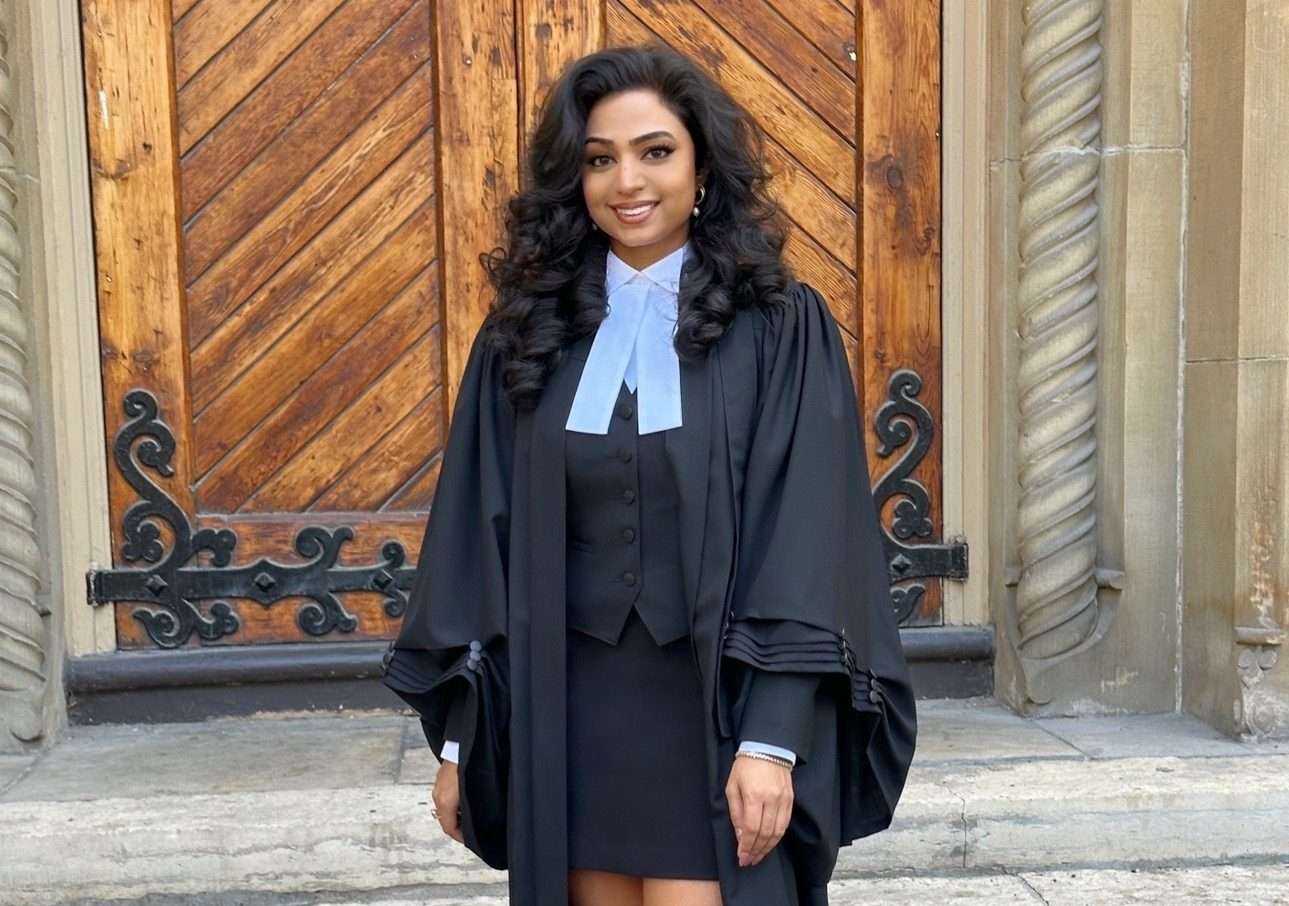
BY SIMONE J. SMITH
Women of colour have historically faced systemic barriers to entry and advancement in various professions, including the legal field. Discrimination, bias, and structural inequalities have limited their access to educational and professional opportunities.
The lack of women of colour in leadership positions within the legal industry has contributed to a cycle of underrepresentation. A lack of role models and mentors can make it more challenging for aspiring female professionals to envision a successful career in the field.
Luckily, our Woman Empowered smashed the ceiling on Tuesday, October 10th, 2023, by becoming one of the first Guyanese women to be called to the Ontario Bar.
She is a first generation Guyanese Canadian with roots in 58 villages of Berbice. Her mother emigrated from Guyana to the United States in the 70’s, before settling in Canada. She is an Associate Lawyer practicing exclusively in the area of criminal defense. She joined the team of Heller Hunter Azevedo after articling for a prestigious Toronto boutique criminal litigation firm. She has assisted with successfully representing clients at all levels of court in Ontario and Canada.
Prior to law school, our Woman Empowered graduated with distinction from the University of Toronto, where she obtained a double major in Criminology and Sociology, and Ethics, Society and Law. She also received her Masters of Arts from the University of Toronto in 2018.
She earned both a Canadian and an American Juris Doctor degree from the University of Windsor, and the University of Detroit Mercy in 2022. While in law school, she volunteered as a student attorney at the 36th District Court of Michigan’s Public Defender’s office and served as Co-President of the Windsor Chapter of the First-Generation Network. She was involved in the Criminal Law Association of Windsor, and Pro-Bono Students Canada, and was also the recipient of the 2021 Brian E. McIntyre, Q.C. Memorial Award in Criminal Justice.
It was such an honour to sit down with Cassandra Geeta, and dialogue about her journey to becoming a Criminal lawyer. What I learned is that this young woman is not only determined, relentless, and driven to represent her community the best way that she can.
“My mom immigrated from Guyana in her early teens, lived in the Bronx for a little, and then resided in Florida for a spell. Ultimately, she ended up in Canada. I was born in Brampton, Ontario, and we ended up settling in Mississauga. I had a difficult upbringing. When my mom moved to Canada, she moved because she had met my father. They ended up going through a difficult divorce, and my mom had no one here to support her. She was in a foreign land, facing a foreign justice system. All she had was her wits and courage to get through this.”
Thankfully, the universe sent them a guardian angel, a man named Vishnu Misir who was a lawyer from her mom’s extended family. “He helped my mom through some of her legal battles that she was fighting. He was one of the only family members who stood up for her and stood up for me. I can’t help but tell you that he has helped shape my destiny. He passed away a few years ago, and he didn’t get to see me where I am today. It is one of my biggest regrets to not get to see him now.
My mother and I are resilient. A lot of people don’t know what my mom and I have gotten through together. One aspect of my life that my mom enforced was school, ‘Take your education, take your book; when you have your education, no one can take it from you,’ she would tell me.
I started to take my education very seriously in high school, and I ended up at the University of Toronto. It was here in my third year that I was introduced to a Criminology course. Justice Davies taught that class. It was practical criminal work, and I thought I might be good at this.”
Her heart became set on criminal law, and she continued her education to get her Masters.
“I graduated in 2018, and things slowed down for a year. I had to take some time for myself. One of my first jobs was working at Mercedes Benz as a concierge, and all the while I was studying for school, and writing the LSAT.
My mom’s parents passed away four, or five years ago and it was devastating for the family. They were the eldest grandparents. These are two people: the matriarch and patriarch of our family, and they didn’t get to see me reach here.
When I received the acceptance at University of Windsor, I called my mom and burst into tears. Every day since then, it has seemed like one less burden was on my shoulders. I knew I was going to have a career; I wouldn’t be struggling anymore. I got into Law School, and I was determined. I have always viewed school as a great challenge, and if I put enough effort into it, I would be able to do well. I have always done well with school.
I applied to the Dual JD program. When my mom came to this country, she lost everything, but gained me. She stayed here because of me. Having an American law degree would allow me to take my mom back to where she would be happiest.
I didn’t feel intimidated, but I realized there was so much to learn. Law school solidified for me that Criminal Law was my path. My mom really wanted me to get into other types of law; I think that people think there is something seedy about criminal law.”
It is understandable why Cassandra’s mom was trying to steer her daughter in another direction. Criminal cases involve high stakes and can have a significant impact on individuals’ lives. The outcomes of cases may determine whether a person goes to jail, faces fines, or has their reputation tarnished.
The pressure to secure favorable outcomes for clients can be intense, and dealing with criminal cases can be emotionally draining. Criminal lawyers often work with clients who are facing serious charges and may be going through difficult circumstances. The emotional toll of handling such cases, especially those involving violent crimes or tragic events, can be challenging.
Cassandra knew that the legal system was complex, and that criminal lawyers must have a deep understanding of criminal law, court procedures, and legal precedents. She understood that building a successful criminal law practice would take time.
“My first year of law school was in person, and the second two years were virtual due to the pandemic. It was difficult; it felt like a long haul.
I became Co-President of the Windsor Chapter of the First-Generation Network. It was a student association geared towards First Generation legal professionals. People don’t understand how much work it takes, so to be able to connect with other students who understood the challenges was important.
I also served as Student Attorney at 36th District Court of Michigan. It was my first real stab at practical advocacy. It prepared me for my experiences after law school, especially when it came to engaging this vulnerable population.
What you take from your studies is different from person to person. Crime is not simplistic; it can be just one wrong decision along the road. I don’t judge my clients; when they turn to someone to help them, they don’t want to hear judgments on their actions. I am empathetic to them, and they need that.
My mom inspired me to be in service to people who might need help like she did. I want to be that helping hand to someone else. Everything is a reminder of where I came from.”
Despite these difficulties, Cassandra finds the work incredibly rewarding, as she now plays a crucial role in upholding justice and protecting the rights of individuals accused of crimes. The challenges in this field often come with the territory, and thankfully for our community, Cassandra is passionate about criminal law and justice. We are proud of you Cassandra; your work is needed.
Women Empowered
Amaya Athill Creating our space in the world of golf
Published
5 months agoon
November 30, 2023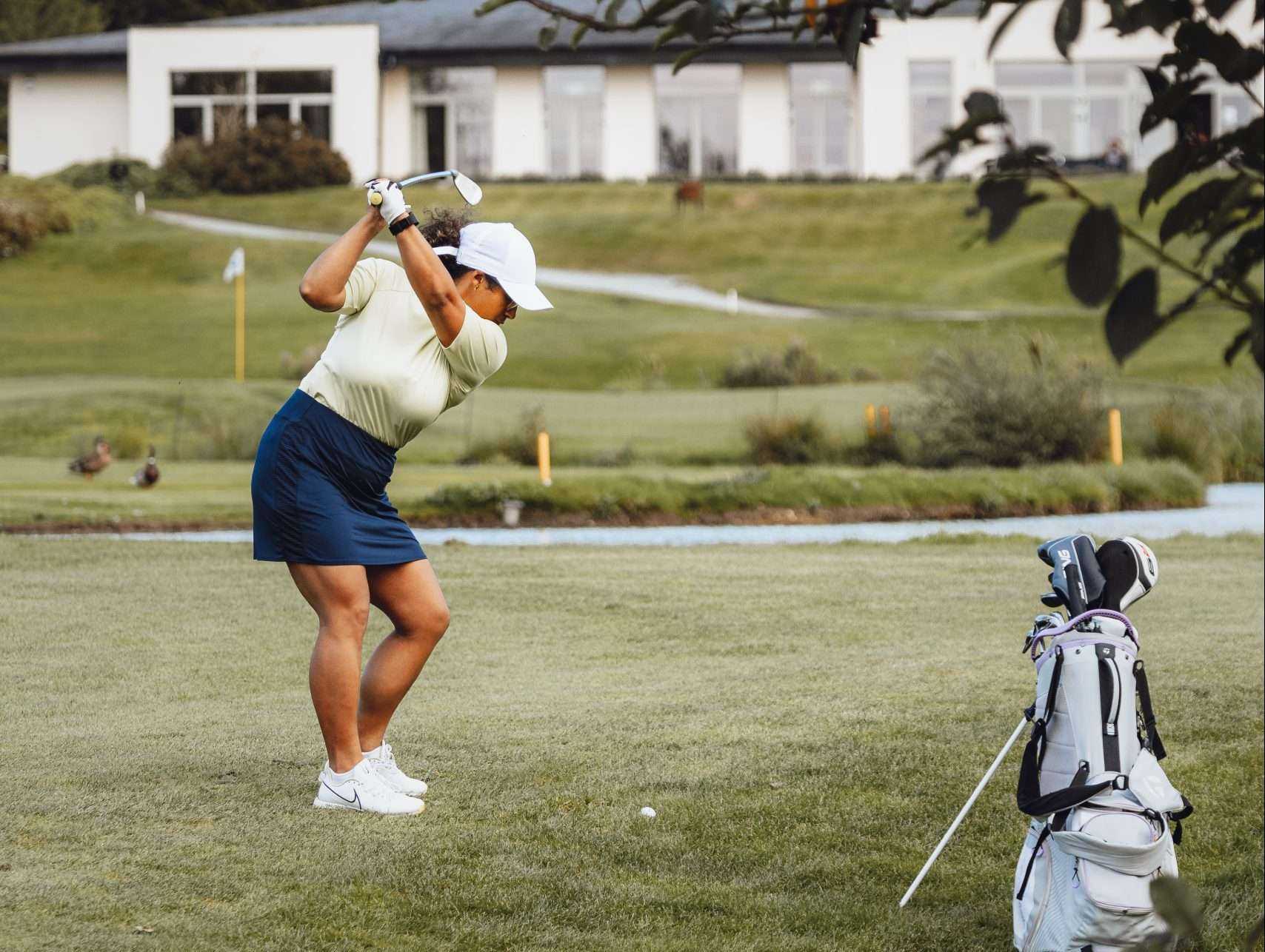
BY SIMONE J. SMITH
When you think about the game of golf, you think of it’s a game for White men. This is because the barrier of entry is high, and the techniques can typically only be sharpened with costly lessons over time. Although diversity within the sport is still questionable, more women are engaging in this activity and getting access to this secret world, and I am proud to say that one of our own is leading the pack.
Antiguan-born Canadian professional golfer Amaya Athill joined travel industry professionals for a day of fun on the links at this year’s Association of Canadian Travel Agencies (ACTA) Ontario Golf Tournament. On Thursday, July 13th, 2023, at Royal Ontario Golf Club in Milton.
With a 10-year background in law, our Woman Empowered is one of the few Black women to become a PGA professional in Canada. Since moving to Canada, a year ago, Athill has worked on a number of initiatives to make golf more inclusive. In her role as Manager, First Tee – Ontario with Golf Canada she works on creating opportunities for access to golf for children from historically underrepresented and marginalized communities.
She is a contributor for ScoreGolf Magazine where she highlights DEI initiatives in golf Canada-wide. She is also the founder of Black Women Golfers, whose mission is to ensure Black women – from beginners to more advanced golfers – have a space and community in the sport. I am going to share my interview with her, and I know you are going to find it inspiring.
When we choose our Woman Empowered features, we look for women who are not the norm, the ones who challenge societal thought, and pave their own trails regardless of what others think of them. They push boundaries, break glass ceilings, fail, recover, restart, and recalibrate. I couldn’t be prouder than to formally introduce to you our Woman Empowered, Amaya Athill.
“Before we even start Simone,” Amaya said excitedly. “I am a proud product of the golfing community in Antigua and pleased to represent my island in the golfing space in Canada. It’s an honor to have been invited by the Antigua and Barbuda Tourism Authority to support them in their mission to showcase all that Antigua and Barbuda has to offer to the travelling community. I really enjoyed myself.”
“So, Sis! You have to tell me how you got into golf. There is so much to your life resume, I am excited to hear it all. Where should we start?”
“Well, I was born and raised in Antigua, and I will admit. I travelled around a lot. I completed primary and high school in Antigua, and then went to the UK for University. At that time, my focus was school. I knew what I wanted to do, so I was determined. I started in law, 2011 and qualified as a barrister in the UK. I actually got to do six months of schooling in Jamaica and did the Antigua bar in 2012.
I got a Fulbright Scholarship to Georgetown University Centre in Washington D.C. and studied there for a while. I moved back to Antigua in 2013 and started a position at Lake & Kentish Attorneys at Law. Kenny Ketish was phenomenal. He mentored me in civil litigation and believe me it was very taxing. Working alongside Kenny was an incredible experience; I felt nurtured in my growth. I did a lot of human rights, and this was for six and a half years.
I got a fellowship opportunity for one year in 2017. Interestingly enough, it was in Montreal, Canada. The fellowship brought together 12 leaders, dumped us in a mansion, and we talked about politics, governance and excellence. It was a wonderful year, wonderful experience.”
Amaya’s travels did not stop there. She moved back to Antigua in the summer of 2018, and worked at the Legal Aid and Advice Centre from 2018 -2019. She then moved back to England and worked at the Commonwealth Secretariat working in international law.
“It was an in-house counsel role until 2022, and then I moved to Canada last year,” Amaya tells me.
“All right Amaya! Let’s get into the juicy parts; tell me all about your golf genesis.”
“I started playing golf when I was five years old. My dad introduced me to the game, and he put me in the junior golf academy. I was part of a very robust program. I met a lot of friends, and I really loved it. We were able to travel to compete in various golf tournaments across the Caribbean. When it came time to university, we did not have the tools needed to get scholarships, so I gave up golf for 10 years.
The pandemic hit when I was working in the UK. I was stuck in the apartment for a year. It was terrible, and my mental health took a hit, so I turned back to golf. I bought golf clubs off the rack, went to my local golf course and started playing golf again.
This time, it was different; in Antigua everyone looked like me in the golf industry, but in the UK, I was the only woman of color. I felt isolated and kinda intimidated. I had to question myself; why was I feeling like this? I connected with the African Caribbean Golf Association, and finally, once a month I had a community that I could golf with, play with, and I could network with.
I started to do a taster session (intro to golf session). Women would get to try golf, and I would offer a get into golf package where you would do six weeks with me to get into the sport. It was a really cool time; you can check out my Instagram page golf_interrupted. I started that in 2021.
I had applied for permanent residency after my experience in Montreal and was successful. During my process of moving to Canada, I was also in the process of applying (taking exams to transition my qualifications) for the bar in Canada.
“During that time, I applied for a manager position with First Tee-Ontario (Golf Canada). I saw this role and I thought, I am doing this already. I could do this as a side hustle. At that time, I was also kinda jaded when it came to my law career, so I contacted the director via LinkedIn. The message was very simple, ‘This is who I am. I am interested in this role, can we chat?’ He was very open to the idea and took a chance on me. I had a job to come to when I came to Canada, so I felt secure when my husband and I moved here last April.”
When she started her position, Amaya recognized a common theme. Once again, she was the only African Caribbean woman playing the sport.
“This is why I found the Canadian Caribbean Golf Association and started playing with them regularly. I spent the last year growing in my role. I love getting underrepresented children in the sport.”
Amaya was very transparent about her challenges. I have to say that I really appreciated that.
“I am a good golfer, not a great competitor. When you are competing, you can get in your head a lot. All of your flaws can show up on the golf course. It can break you down. When I decided to turn pro, I had to take a Playing Ability Test. You have to shoot below a certain score, and I failed miserably. Believe me when I say that it was a humbling experience.
During this experience, I noticed that every pro that there was to work with was either a white man, or a white woman. I took the test again in May and passed. I am one of the few African-Caribbean women who is in the PGA. I also passed the bar in June.”
“Oh gosh! Congratulations Amaya! That is a lot that you accomplished in a short amount of time.”
“Thank you so much Simone. What I am really proud of is doing more for the sport by founding Black Women Golfers. We started meeting up in the off season and practiced golf together. My question was, how do we get more women in the sport?
We had an intro to golf session where 18 women came and were taught the basics of golf. Then there is a range meet up once a month and we practice together. Then once a month we have actual games. It is very new, we just started. We partnered with Brown Girl Outside World on this initiative; golf has been added to their calendar.”
What a sensational woman; she is everything that we want for our Women Empowered Feature. Amaya, keep being a light in this dark world.

Step into Spring with SheaMoisture’s new collection

The cost of convenience: how much does delivery really cost?

Will Léonice Huet (Black badminton player) qualify for the Paris 2024 Olympics

Beneath the waves: Unveiling the legacy of the transatlantic slave trade in the Bahamas

Everlasting Flames-to be Submitted

Amplifying authentic African narratives; the stars came out at the BSO Symposium
YOGA: Surya Namaskar (Sun Salutation) for sufferers of hypertension or heart disease
Kemtek Development launches new exclusive gated community in Jamaica!

Ravi’s West Indian Grocery – Fresh Products Weekly Straight from Guyana!

Tourism-Related Live Streaming – The Manifold Ways it Can Create a Buzz for a Destination

ASA Meats & West Indian Groceries – Serving Freshness & Quality to the Community

Do You Have a 407 ETR Story?

Nadine Sutherland – A woman who continues to reinvent herself

Knia Singh – Light Up The Darkness

Spragga Benz – Light Up The Darkness

Kyle Kemper – Light Up The Darkness

David Icke – Light Up The Darkness

Ohio’s Bill 248 and Dr. Sherri Tenpenny’s compelling testimony
Trending
-

 Community News2 weeks ago
Community News2 weeks agoAlmost Homeless – Eight years of Justin Trudeau; Canada’s housing is against the ropes, and Toronto renters suffer
-

 Community News1 week ago
Community News1 week agoChemical hair straighteners are causing uterine cancer, fibroid tumors and infertility in women of colour
-

 Community News1 week ago
Community News1 week agoRichard Rooney gifts $5 million to the African Studies Centre and the Centre for Caribbean Studies at the University of Toronto
-

 Community News1 week ago
Community News1 week ago“Stop egging me on!” Companies are simply getting better at carefully wording things on their packaging
-
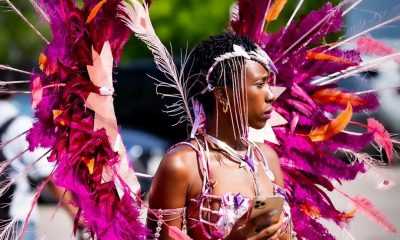
 Community News2 weeks ago
Community News2 weeks agoFreedom Mas Kick off the start of Band Launch Season 2024
-
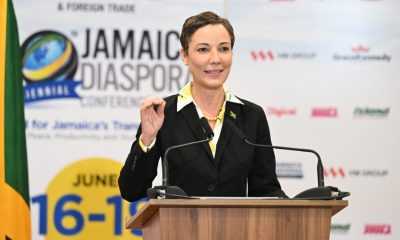
 Community News1 week ago
Community News1 week agoNot just a reunion; It’s a powerful catalyst for unity and growth. Welcome to the 10thBiennial Jamaica Diaspora Conference
-
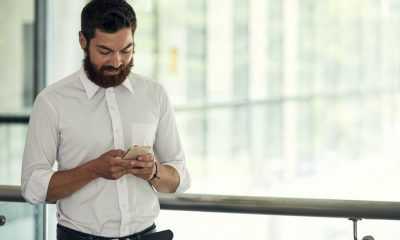
 Community News2 weeks ago
Community News2 weeks ago14 Days to a healthier work-life balance
-
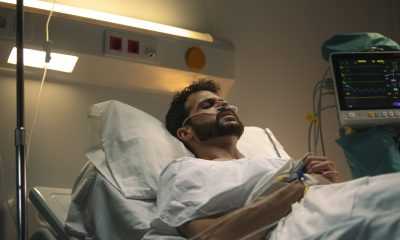
 Community News1 week ago
Community News1 week agoSharp rise in the number of medically assisted deaths in Canada sparks concerns







Everton Gordon
July 2, 2020 at 5:13 pm
Would like to contact Donisha Prendergast for a Conference on Rastafarians in their Homeland of Sheshamane, Ethiopia and in the Global spaces of Diaspora!